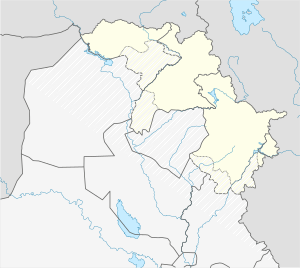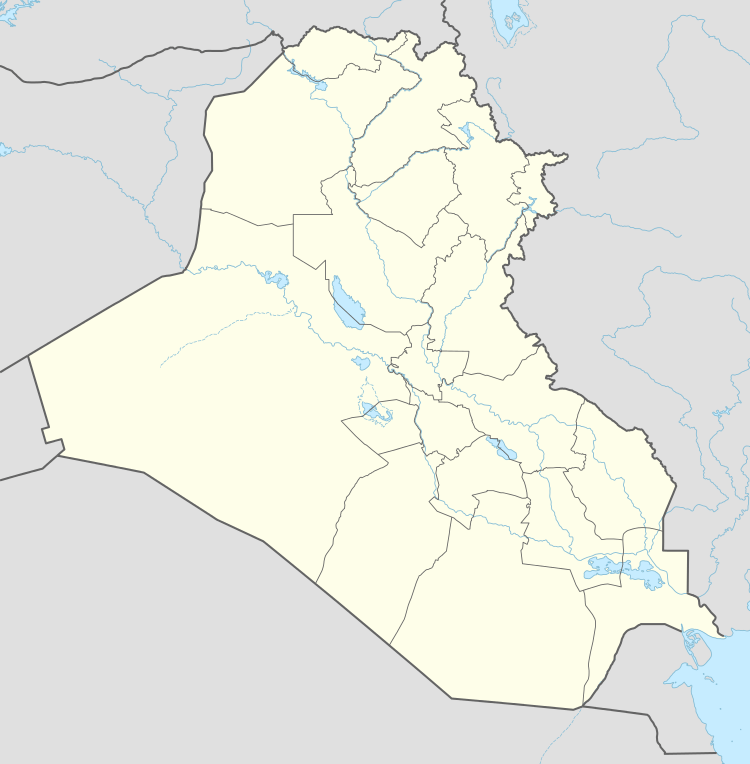Simele
Simele (Kurdish: Sêmêl ,سێمێل),[2][3] Syriac: ܣܡܠܐ[4]) is a town located in the Dohuk province of Kurdistan Region in Iraq. The town is on the main road that connects Kurdistan Region to its neighbour Turkey. It is 14 km (8.7 mi) west of the city of Dohuk.
Simele | |
|---|---|
 Simele Location in Iraq  Simele Simele (Iraq) | |
| Coordinates: 36°51′30″N 42°51′0.35″E | |
| Country | |
| Autonomous region | |
| Governorate | Dohuk Governorate |
| Population (2018) | 71,600 |
Demographics
The town is populated by Assyrians[5][6] and Kurds. Most Assyrians and the small Armenian population arrived after the Assyrian genocide and Armenian Genocide in 1915.[7]
Simele massacre
The Assyrian people, who resided in Simele and its neighboring area, were subjected to a massacre on August 7th, 1933, implemented by the Iraqi government. The massacre was the first state-sponsored massacre in Iraq's young history after the establishment of Iraq in 1921. An estimated 3,000 Assyrians died during the 1933 massacre.[8]
Footnotes
- "Kurdistan Regional Government". KRG. Retrieved 2012-05-21.
- "سێمێل". duhok.gov.krd/ (in Kurdish). Retrieved 14 April 2020.
- "Daxûyanî ya serokatî ya Perlemana kurdistanê". Government of Kurdistan Reigon (in Kurdish). Retrieved 14 April 2020.
- "Syriac Writers Union" (PDF). Sapra Suryaya. 2016.
- Baarda, Tijmen C. (2020-02-26). "Arabic and the Syriac Christians in Iraq: Three Levels of Loyalty to the Arabist Project (1920–1950)". Arabic and its Alternatives: 143–170. doi:10.1163/9789004423220_007.
- Robson, Laura (2016-01-02). "Peripheries of belonging: military recruitment and the making of a 'minority' in wartime Iraq". First World War Studies. 7 (1): 23–42. doi:10.1080/19475020.2016.1159595. ISSN 1947-5020.
- Safi, Marlo. "The Simele Massacre & the Unsung Hero of the Genocide Convention". National Review. Retrieved 27 June 2020.
- "Iraq: continuous and silent ethnic cleansing Displaced persons in Iraqi Kurdistan and Iraqi refugees in Iran" (PDF). FIDH: 17. January 2003. Retrieved 14 April 2020.